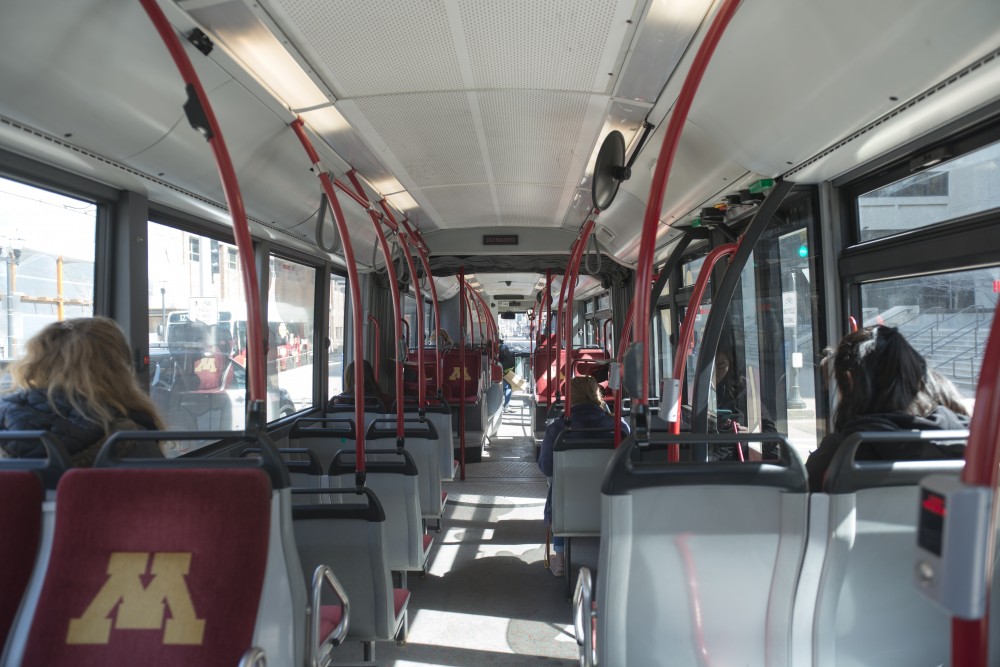Despite the end of a harsh winter, which saw many overcrowded University of Minnesota buses and increased delays, students continue to voice their concerns about campus buses and push for change.
The Minnesota Student Association recently made efforts to open lanes of communication between concerned students and the University’s Parking and Transportation Services. MSA held a town hall to discuss campus transportation last month, during which students expressed frustration with overcrowding, limited bus routes, accessibility and the safety habits of campus bus drivers.
One safety concern brought up at the town hall was extreme overcrowding, including riders standing past the yellow safety line on the bus.
“Historically, the bus drivers, their primary protocol is to effectively ask the students to move back … generally speaking, they have found that to be effective,” PTS Director Ross Allanson said.
The University has a contract with bussing company First Transit, which provides buses and drivers for the University campus. Fourth-year University student Brian Shaw, who works for a bus company not associated with the University, said he would like to see PTS to send a message regarding safety to First Transit.
“I feel like it’s Parking and Transportation’s duty to the students to provide a safe ride; the [arrival] time comes second,” Shaw said.
Allanson said bus drivers have a monthly mandatory safety training meeting during which any driving concerns are brought up and training is reviewed.
Several students at the town hall also expressed concern over accessibility for students with disabilities attempting to utilize campus buses.
Issues like malfunctioning wheelchair ramps, improper attachment of wheelchair straps and a lack of knowledge about how to use the equipment were expressed by students.
Ondrew Tillotson, the disability advocacy coordinator for the University’s Disabled Student Cultural Center, said he spoke with students who have experienced accessibility issues with the bus system and attended the MSA town hall to advocate for these students.
Accessibility issues are ongoing, Tillotson said, and many of them would have low-cost fixes, such as improving the speaker system on buses to make them more identifiable for students with low or no vision.
He said he hopes to communicate with PTS in the future to continue addressing these issues.
“No one is being malicious here … no one is a villain. With that being said, we still need to get something done,” he said.
Wheelchair ramp training is given in the form of a one-on-one training session with new drivers during onboarding, according to a statement from Jacqueline Bass, the PTS communications manager. This is not reviewed on a monthly basis, but further training is given if needed.
“Anytime that PTS receives a complaint of the driver not being able to use the wheelchair lift, PTS requires the driver to go through the training process again,” the statement read.
Allanson said PTS has been in touch with First Transit and will continue to bring concerns to them as they arise.
“Whenever we get feedback about a safety issue, we will go ahead and reach out to the bus company and talk about it,” Allanson said.








